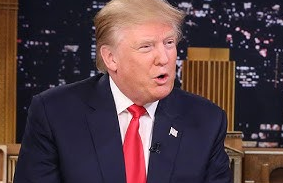The political landscape is shifting once again as President-elect Donald Trump makes a comeback, sending ripples through various facets of American culture, particularly late-night television. Once proud titans of satire, shows hosted by Stephen Colbert, Jimmy Kimmel, and Jimmy Fallon are now struggling with dramatically reduced ratings and dwindling relevance in the face of this political upheaval.
Research from the Media Research Center highlights that, during the critical weeks leading up to the 2024 election, late-night shows traded their comedic breadth for a singular focus on mocking Trump—more than 1,463 jokes crafted during this time targeted him specifically, with a staggering 98% aimed squarely at the former president. Comparatively, a mere 78% of the jokes intended for Kamala Harris and JD Vance marked a striking shift in comedic priorities.
Many audiences seem fatigued by the overt anti-Trump content, an occurrence often referred to as “Trump Derangement Syndrome.” Consequently, these shows, once cultural staples in America, find themselves grappling with a disengaged viewership and an evolving media landscape that no longer champions the polarized humor they embrace.
The ramifications for the Democratic Party are equally concerning. It finds itself leaderless and without a clear new front-runner as it struggles to reclaim its footing amid Hollywood’s disarray. The irony of celebrity pledges to leave the country if Trump ascended once again, voiced by figures like Alec Baldwin and Cher, has not materialized, exemplifying a curious disconnect between political pledges and reality.
As the late-night comedy scene reevaluates its approach, it faces a critical need to navigate away from contentious content, aiming for a broader connection with viewers. With Trump back in the spotlight, adaptation may be essential for these programs to stay relevant in a rapidly changing cultural tide.
Research from the Media Research Center highlights that, during the critical weeks leading up to the 2024 election, late-night shows traded their comedic breadth for a singular focus on mocking Trump—more than 1,463 jokes crafted during this time targeted him specifically, with a staggering 98% aimed squarely at the former president. Comparatively, a mere 78% of the jokes intended for Kamala Harris and JD Vance marked a striking shift in comedic priorities.
Many audiences seem fatigued by the overt anti-Trump content, an occurrence often referred to as “Trump Derangement Syndrome.” Consequently, these shows, once cultural staples in America, find themselves grappling with a disengaged viewership and an evolving media landscape that no longer champions the polarized humor they embrace.
The ramifications for the Democratic Party are equally concerning. It finds itself leaderless and without a clear new front-runner as it struggles to reclaim its footing amid Hollywood’s disarray. The irony of celebrity pledges to leave the country if Trump ascended once again, voiced by figures like Alec Baldwin and Cher, has not materialized, exemplifying a curious disconnect between political pledges and reality.
As the late-night comedy scene reevaluates its approach, it faces a critical need to navigate away from contentious content, aiming for a broader connection with viewers. With Trump back in the spotlight, adaptation may be essential for these programs to stay relevant in a rapidly changing cultural tide.





















